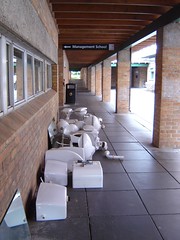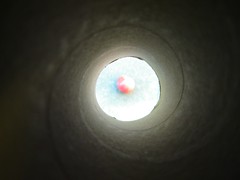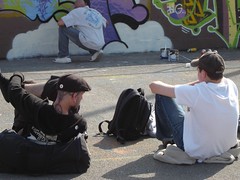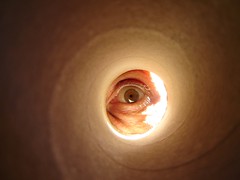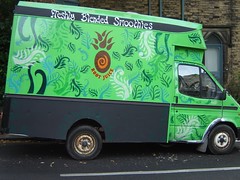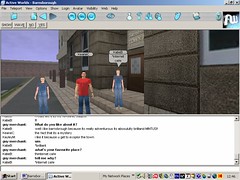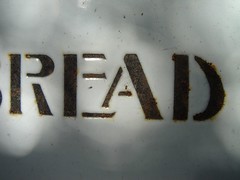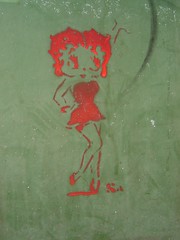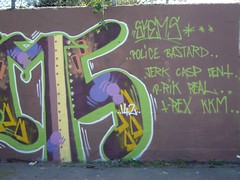
signed
Last Sunday I wrote a comment on some graffiti art – “Sometimes the writing is so stylized that it is hard to decipher; other times the meaning is hard to pin down” – but I didn’t post this text. Since then the explanation has appeared as a comment on my photostream: “The reason skemz wrote police bastard is because everytime we've been painting down at the courts we keep getting hastled by the police, there driving us to do illegals like tracksides, warehousers ETC because atleast we never get hastled....”. Well, that’s clear enough! This is meaning-making in the borderlands. In contrast, re-working books as sculpture is becoming quite respectable. Many thanks to Sigrid for pointing to Su Blackwell’s book sculptures. And there’s more here at wordandimage.
